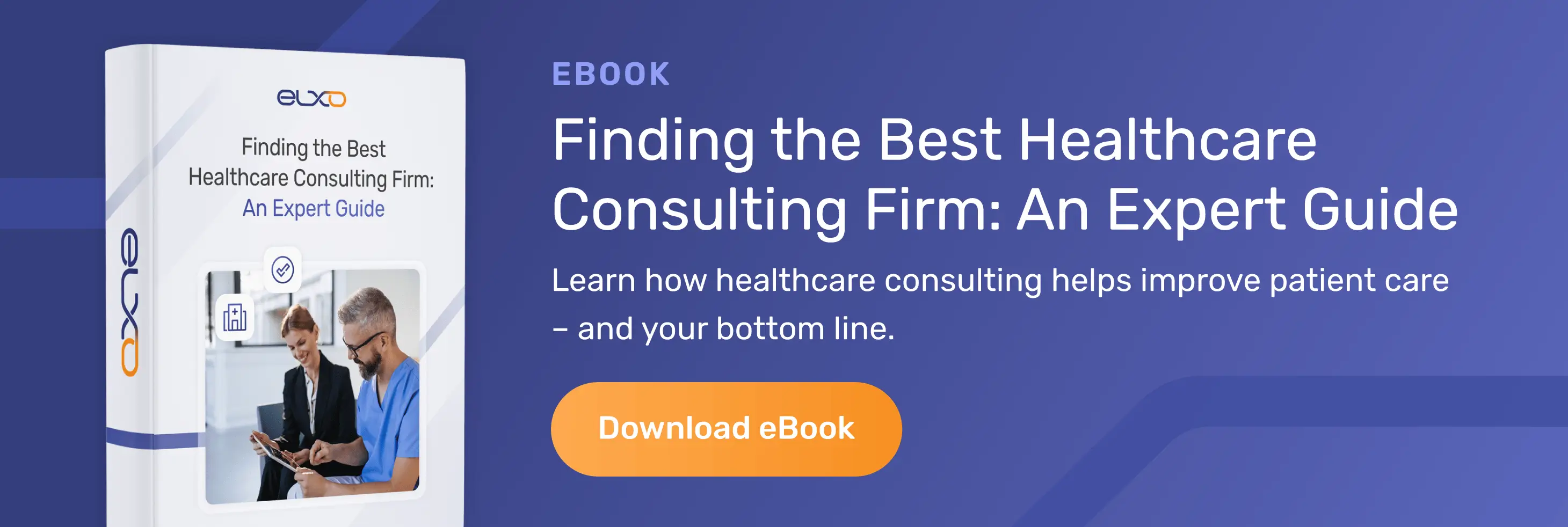Running a healthcare organization isn’t simple. And despite technology’s numerous benefits in the care delivery context, it’s also made the healthcare ecosystem more complex as it’s assumed a larger role in recent years. Among several challenges — from requiring intensive resource management to implementing trainings to ensure adoption — it can put administrators who have deep administrative expertise in the high-stakes role of choosing the right healthcare software development agency.
Hospitals and medical centers run on software that supports positive healthcare outcomes, enhances patient and staff experiences, and streamlines operations — helping everything run more smoothly and cost-effectively.
That’s why the process of selecting a proven medical software development company is so crucial.
But the reality is that leaders who aren’t experienced in IT may feel out of their depth – at least technologically – when hiring a hospital software development company. Luckily, there are several ways in which they can ensure a smooth working relationship and a final product that meets both business goals and end-user needs — many of which most executives can understand with the right basic principles.
Partnering with a Hospital Software Development Company
Executives can take several steps to reach an improved comfort level with choosing the best medical software development company for their organization:
1. Meet the team:
This is going to be a partnership, so know your partner and give them the chance to learn about you. Meet them in-person if possible, find out who will be involved with developing your solution, and understand their roles. Consider that whatever hospital software development agency you choose will not only write code but will also be an adviser throughout the entire implementation process. Find a partner that also offers healthcare IT consulting services to ensure they’re experienced with every aspect of creating and rolling out new technology.
2. Provide ample information:
Developers will build software for your healthcare facility, so they need a 360-degree understanding of your organization. What are the challenges your teams face? Who are the stakeholders and end users who will be using the final technology? What are their pain points, what are the project’s end goals, and what kind of solution do you need? Custom software? No-code or low code? The more information you provide, the better the development company can advise you and build the right product.
3. Clearly communicate your needs:
Define your expectations for the project. Maybe it’s EHR interoperability, seamless integration into clinical workflows, or making remote healthcare easier for patients. After clearly outlining your organization’s goals, you can collaborate more effectively with your software development vendor to meet the requirements of your project scope.
4. Understand the costs involved:
This is true of any project. You might not want to pay a high premium, but going with the lowest bidder doesn’t always help you meet your software goals. Some estimates put the average software project cost at $15,000 to $150,000 and required time at 1,000 hours. Find the right healthcare software development agency that can create the solution you need at the right price — and with payment terms that make the most sense for your organization.
5. Conduct a risk assessment:
Software development can be a tricky proposition. Initial results might fall short of expectations, and solutions may need adjustments. A risk assessment will help both you and the hospital software development company identify potential problems with the technology and address them early to ensure that, once the solution rolls out, there are no errors that could hurt patient care, give overworked staff more to do, or add costs to operations.
![]()
6. Protect your IP:
A nondisclosure agreement (NDA) is a must with any healthcare software development agency you bring on. Ensuring the solution meets the requirements of your organization means disclosing potentially sensitive information and intellectual property to developers. An NDA will help prevent that information from leaking outside hospital walls.
7. Consider a project manager:
Developing a software solution is complex and specialized work. If you don’t know a lot about IT or software creation, bringing on a project manager is a smart move. They can oversee every step, keep stakeholders aligned, and ensure the project timeline stays on schedule.
8. Understand the process:
As mentioned, custom software development is a complex effort with many moving parts. Carefully review project plans that have been put into place and prepare for adjustments that will need to be made along the way.
9. Communicate openly and be flexible:
Health facility leaders want to make sure that projects keep on schedule and stay on budget. But unexpected events and challenges can always arise. Developers go into projects knowing uncertainties might emerge, so maintain dialog with them to collaborate on creative ideas that could improve the process and unblock barriers to creating the solution itself.
10. Ensure developers are a call away:
A healthcare software development agency will often use hybrid and offshore teams. A report by tech services company Commit estimated that offshoring software development positions would jump by 70% between 2022 and 2023. That’s why it’s crucial to have proximal points of contact you can access in case any issues pop up.
Know Your Medical Software Development Company
Building a healthcare software solution is a collaborative effort between the healthcare facility and a hospital software development company, so finding the right partner is critical. You’ll want to get to know them, be clear on what you need, and ensure that they have all the capabilities that will be needed to successfully develop the right technology for your needs.
That includes the ability to build flexible, custom solutions that fit healthcare organizations’ specific needs — offering low-code and no-code methods, as well as delivering healthcare IT consultancy services that can help you navigate the complexities inherent to getting new custom software up and running.
Want to learn more? Schedule a call with one of our experts.




.jpg)

